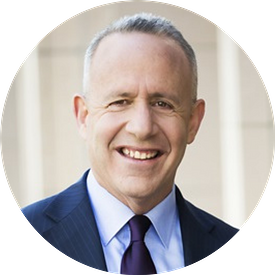
Darrell Steinberg
Darrell Steinberg is currently a National Advisor of the law firm, Manatt, Phelps, and Phillips, LLP. He is also the principal of Steinberg Mediation and Consulting and founder of the Steinberg Institute, the leading mental health advocacy organization in California.
Darrell had a three-decade political career where he was tried and tested in extraordinary circumstances. He succeeded in politics through doggedness, integrity, and caring deeply about the law.
Born and raised in the Bay Area, he is a distinguished alumnus of three UC’s: Berkeley, Los Angeles, and Davis.
Nationally recognized for his work on mental health and honored by the Kennedy library for bipartisan leadership to save the state from bankruptcy, Darrell is respected by everyone he has worked with over nearly three decades of public service.
He began my career as a legal advocate for working people and organized labor. He defended hundreds of workers, tried countless cases at all levels of the administrative and court systems, and had five separate court of appeal decisions published as legal precedents for cases he argued.
He spent two years as an Administrative Law Judge, adjudicating complex employment and discharge cases. He also taught Labor law at UC Davis school of law.
He was most recently the Mayor of Sacramento. He helped lead the transformation of the Capital city from a small town to a major cosmopolitan city, focused on inclusive economic growth, equity, and alleviating the affordable housing, and homeless crisis. After seven years as Mayor, unsheltered homelessness was reduced 41 percent from its post pandemic peak in 2022.
As a legislator, his record of substantive accomplishment, state leadership, institutional and crisis management, wise decision making, problem solving, and coalition building, is unparalleled.
His record is not a couple of individual wins and a six-year stint as Senate pro Tem. It is a record of deep commitment and accomplishment in virtually every area of major public policy over decades.
Prior to becoming President of the Senate, in the Assembly and Senate, he chaired the Labor, Judiciary, Appropriations, Budget, and Water and Resources committees. He negotiated a dozen state budgets as leader or budget conferee.
He has been a tireless and consistent fighter for criminal justice reform, and racial and economic justice throughout his career.
His most important leadership role in his career was helping guide California out of the worst recession in modern history. He led by helping my colleagues make the necessary, difficult choices, while assuring that the necessary cuts protected and saved more than was lost, especially for California’s most vulnerable residents.
His leadership earned him and Congresswoman and former Speaker Karen Bass the John F. Kennedy Profile in Courage award for their bipartisan work to prevent California from fiscal and economic collapse.
He authored and championed California’s Mental Health Services Act (Prop 63), approved by voters in 2004. Prop 63 was the first of its kind in the nation, generating $31 billion dollars over the last twenty years and serving as the bedrock of the State’s mental healthcare system. He raised all the money to win a statewide campaign for an issue with few champions.
In 2012, he also authored the law mandating insurance companies cover early intervention treatments for children with autism.
When California public schools were faced with $20 billion in cuts in the years following the Great Recession, he played the crucial public and behind the scenes role to place Prop 30 on the 2012 ballot. Prop 30 restored critical education funding and provided resources for reinvestment in other essential public services.
During his tenure as Senate President Pro Tem, he secured $500 million for career technical education and workforce development, investments that have made California a national leader for its efforts to build and support career pathways programs.
He authored and championed SB 375, the State’s landmark “smart growth” law to reduce statewide greenhouse gas emissions. SB 375 continues to serve as an indispensable element of California’s efforts to address climate change.
He was the architect of the 2009 state water package and the lead negotiator of the 2014 state water bond during my final year in the Senate.
In 2013, he rejected then-Governor Brown’s proposal to meet a court ordered reduction in prison overcrowding solely by building more cells, understanding that the solution had to include addressing root causes of recidivism and incarceration. Ultimately, the Governor agreed to his push to invest an additional $90 million in recidivism reduction programs, which continue to have a central role in the state’s battle against recidivism and overcrowding.
During his tenure as Senate leader, he worked to pass laws allowing undocumented citizens to obtain driver’s licenses and implementing the California DREAM Act.